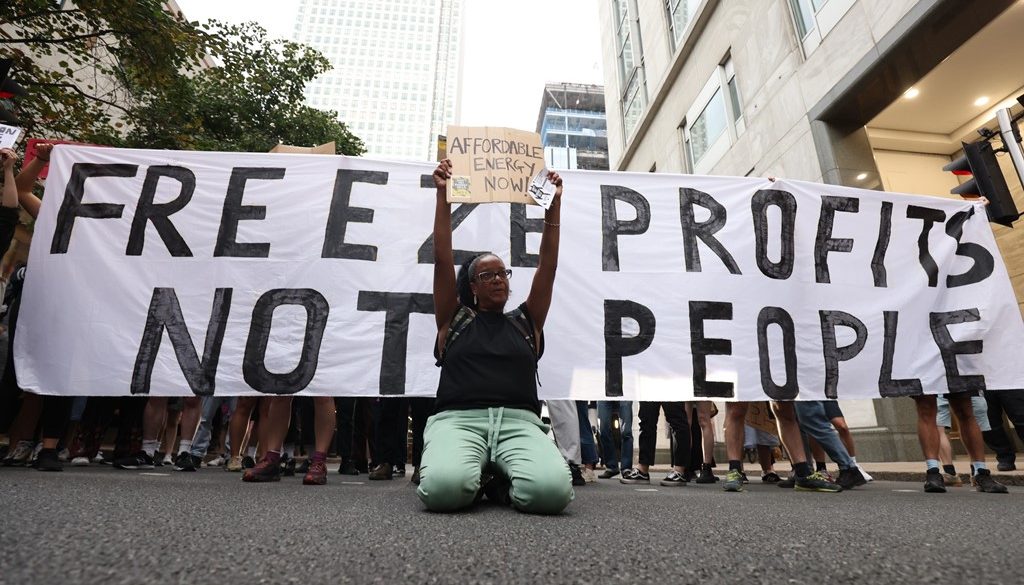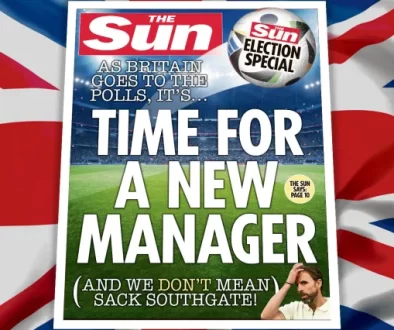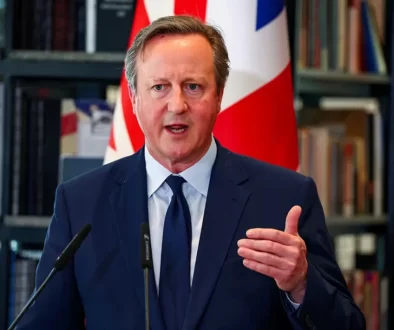East-West economic warfare & greed make heating a luxury for the few

The real cause of the energy problem is our own backfiring sanctions on Russia, following Russia’s invasion of Ukraine – for which we are as guilty as Russia – together, of course, with the incredible greed of the energy companies.
The problem cannot be solved as long as the current East-West economic warfare and the war in Ukraine continue. Government “charity”, such as last May’s promise to give each household £400.00, now sounds like a joke in view of spiralling price increases.
Unless diplomacy is put at work to end the war in Ukraine and the sanctions are suspended and energy company greed is brought under control, the problem can only get worse and we will be heading for total energy poverty and misery. Heating will become a luxury for the few.
The territorially largest country in the world and apparently the richest in terms of natural resources, especially gas and oil, and another important country, one of the biggest suppliers of some very essential products, especially wheat and fertilizers, are disastrously at war with each other since last February.
The first, Russia, is being subjected to unprecedentedly severe sanctions imposed by the West – USA, UK, EU and NATO – and, quite predictably, has been “weaponizing” gas, restricting supplies to EU and NATO countries, causing a severe energy crisis which goes on escalating and could last for years.
The second, Ukraine, is being severely tested by the invasion of the first, millions of people have become refugees in other countries, many thousands of the most active part of the population are front line soldiers and economic and business activity is disrupted or paralysed as a result of the ongoing war.
The country is virtually blockaded and only recently the first grain ships managed to sail out of the Black Sea, following a fragile agreement. Before this war, ordinary people in the West never knew that these two countries, Russia and Ukraine, are so important for our economies.
Wholesale gas prices have already reached about 10 times the level they averaged during the last decade, after Russia’s supply curbs predictably intensified as a response to USA/NATO/EU sanctions following the invasion of Ukraine, and, generally, with Moscow and the west engaging in economic warfare.
While Britain imported only a small percentage of its gas from Russia before the Ukraine war, it is connected by pipeline to the wider European market, which relied on Russia for as much as 40 per cent of its supplies.
The scale of the challenge facing working people in the UK was laid bare on Friday when the energy regulator said household power bills would surge 80 per cent with further rises expected next year.
We are talking about a spiralling cost of living crisis and an energy crunch this winter that threatens to plunge millions of households into energy poverty.
According to what Ofgem, the energy regulator, said last Friday, the typical household gas and electricity bill in Britain will rise from £1,971 to £3,539 a year from October and industry consultants forecast energy bills could top £6,600 by the spring, more than five times higher than a year ago.
European prices hit the highest level on record on Friday. The UK government has faced growing calls to provide additional support for households to stave off a deep recession.
With poorer households hit hardest by energy prices because gas and electricity account for a larger share of their expenditure, the finances of some single adults would be wiped out by stratospheric energy bills that make up almost 120 per cent of their income after housing costs, leaving many destitute.
Jonathan Brearley, chief executive of Ofgem, said £15bn of government support that was announced in May, which will provide £400 to every household and more to those on benefits, would no longer be enough. In May, the price cap — the maximum amount set by the regulator for typical household energy use — was forecast to reach about £2,800 a year by October.
“It’s clear the new prime minister will need to act further to tackle the impact of the price rises that are coming in October and next year,” Brearley said. “The response will need to match the scale of the crisis we have before us.”
The business department said “additional support . . . can be delivered as quickly as possible when the new prime minister is in place”. Truss, the favourite to be the next prime minister, said she would “immediately take action . . . by cutting taxes and suspending green energy tariffs”.
Her allies said “it would not be right” for Truss to set out detailed plans before she was elected prime minister but pledged that she would make energy affordable for households.
Rachel Reeves, the shadow chancellor, said the latest price cap figures would “strike fear in the heart of many families”, adding that the public deserved a government that could “meet the scale of this national emergency”.
Labour has said it would cap bills below £2,000. It has suggested raising funding for such action by tightening discounts for oil and gas companies in the windfall tax that Sunak introduced in spring.
Cornwall Insight, an energy consultancy, said on Friday that its latest forecasts showed an expected increase to £5,386.71 for the first quarter of next year.
The cap will next be adjusted in January, since Ofgem now carries out reviews every three months rather than six.
By the second quarter of next year the price cap is expected to reach £6,616.37 before easing slightly to below £6,000 later next year. “
Today should be seen as a wake-up call to policymakers that short-term thinking and triage of the energy system is not enough,” the consultancy said.


